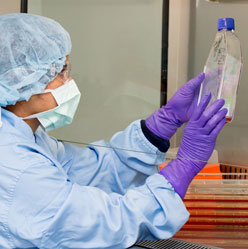Research at Magellan
Magellan Stem Cells has been undertaking or partnering in stem cell research since 2012.
In that time it has published the results of this research and clinical trials in several journals, including the British Medical Journal Case Series, Regenerative Medicine, Osteoarthritis and Cartilage Open and Future Science OA.
More than 1500 people have been treated in these trials for the treatment of osteoarthritis.
The results of our Phase I/IIa trials of Magellan’s off-the-shelf osteoarthritis donor treatment MAG200 were published in Osteoarthritis and Cartilage Open.
Following publication, the Australian Government, through the National Medical Future Fund (MRFF) announced a $7 million grant towards Magellan’s Phase III trial of MAG200.
The Phase III trial is expected to commence later in 2025. Magellan continues to undertake and fund research into innovative treatments for osteoarthritis.
Magellan with its research partner MSCCR have published research including:
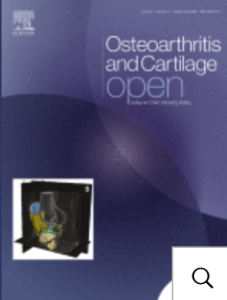 This research demonstrated potential for significant therapeutic benefits of Magellan’s MAG200, an off-the-shelf donor stem cell therapy for osteoarthritis.
This research demonstrated potential for significant therapeutic benefits of Magellan’s MAG200, an off-the-shelf donor stem cell therapy for osteoarthritis.
This article won the Osteoarthritis and Cartilage Open Clinical Research Publication of the Year Award for the excellence of its original research. The award was presented in Seoul, South Korea, in April 2025.
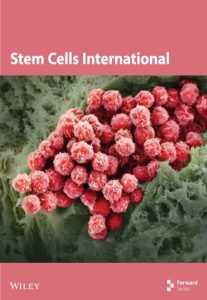 With an increasing focus on the large-scale expansion of mesenchymal stem cells (MSCs) required for clinical applications for the treatment of joint and bone diseases such as osteoarthritis, the optimisation of conditions for in vitro MSC expansion requires careful consideration to maintain native MSC characteristics.
With an increasing focus on the large-scale expansion of mesenchymal stem cells (MSCs) required for clinical applications for the treatment of joint and bone diseases such as osteoarthritis, the optimisation of conditions for in vitro MSC expansion requires careful consideration to maintain native MSC characteristics.
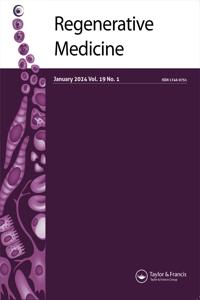 This case series study is the first to successfully show the use of adipose-derived mesenchymal stem cells in conjunction with a current surgical technique, arthroscopic abrasion arthroplasty (AAA), in the treatment of advanced knee osteoarthritis with resultant joint preservation and prevention of need for total knee replacement.
This case series study is the first to successfully show the use of adipose-derived mesenchymal stem cells in conjunction with a current surgical technique, arthroscopic abrasion arthroplasty (AAA), in the treatment of advanced knee osteoarthritis with resultant joint preservation and prevention of need for total knee replacement.
 This pilot case series illustrates the novel and successful treatment of isolated focal chondral lesions of the knee with arthroscopic abrasion arthroplasty in combination with adipose-derived mesenchymal stem cells. Treatments were well tolerated with no serious adverse events and participants experienced clinically significant pain, functional and structural improvement. Structural analysis was comparable to more complicated graft techniques such as MACI with improved regenerative cartilage quality in comparison to other surgical techniques including microfracture.
This pilot case series illustrates the novel and successful treatment of isolated focal chondral lesions of the knee with arthroscopic abrasion arthroplasty in combination with adipose-derived mesenchymal stem cells. Treatments were well tolerated with no serious adverse events and participants experienced clinically significant pain, functional and structural improvement. Structural analysis was comparable to more complicated graft techniques such as MACI with improved regenerative cartilage quality in comparison to other surgical techniques including microfracture.
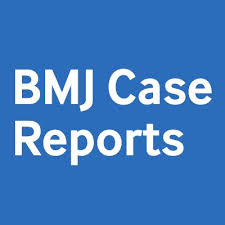 This case study is the first documented use of adipose-derived mesenchymal stem cells therapy in combination with arthroscopic excision and curettage of an Osteochondral Lesion (OCL) of the ankle. The patient had had prior unsuccessful ankle surgery and a most recent failure of a periosteal graft. Throughout the follow-up period of 24 months, the patient reported marked functional improvement in daily activities and function as recorded by the FADI score. Treatment was well tolerated with no significant adverse events observed.
This case study is the first documented use of adipose-derived mesenchymal stem cells therapy in combination with arthroscopic excision and curettage of an Osteochondral Lesion (OCL) of the ankle. The patient had had prior unsuccessful ankle surgery and a most recent failure of a periosteal graft. Throughout the follow-up period of 24 months, the patient reported marked functional improvement in daily activities and function as recorded by the FADI score. Treatment was well tolerated with no significant adverse events observed.
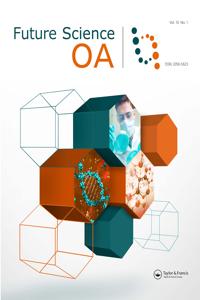 Despite improvement in our understanding of the disease pathology of acute respiratory distress syndrome (ARDS), it continues to have limited treatment options and poor outcomes with a high fatality rate. Early-phase clinical trials have shown safety in the intravenous application of mesenchymal stem cell therapy for ARDS with some trials showing initial efficacy indicated by improved ventilator and ICU free days and reduced mortality. MSC therapy represents a promising breakthrough in the active management of a condition, which until now has had limited treatment options.
Despite improvement in our understanding of the disease pathology of acute respiratory distress syndrome (ARDS), it continues to have limited treatment options and poor outcomes with a high fatality rate. Early-phase clinical trials have shown safety in the intravenous application of mesenchymal stem cell therapy for ARDS with some trials showing initial efficacy indicated by improved ventilator and ICU free days and reduced mortality. MSC therapy represents a promising breakthrough in the active management of a condition, which until now has had limited treatment options.
 In this single case report, the use of adipose-derived mesenchymal stem cells resulted in rapid clinical improvements in pain and function in severe CEO tendinopathy of a professional masters golfer. Pain scores reduced to 0 by 1 month of follow-up, with the patient remaining asymptomatic throughout the remainder of follow-up. This improvement was reflected in PRTEE pain and function scores.
In this single case report, the use of adipose-derived mesenchymal stem cells resulted in rapid clinical improvements in pain and function in severe CEO tendinopathy of a professional masters golfer. Pain scores reduced to 0 by 1 month of follow-up, with the patient remaining asymptomatic throughout the remainder of follow-up. This improvement was reflected in PRTEE pain and function scores.
Repeat US analysis at 18 months and again at 30 months showed successful regenerative healing at the site of tendinopathy with tissue ingrowth and resolution of the intrasubstance tear.
 In this random controlled trial, autologous Adipose-derived mesenchymal stem cell therapy was associated with clinically significant improvement in pain and function in symptomatic knee osteoarthritis. These improvements were well beyond that achieved by conventional methods. Furthermore, autologous Adipose-derived mesenchymal stem cells were associated with successful disease modification with comparison of treatment protocols indicating that two intra-articular injections of ADMSCs separated by 6 months achieved more consistent OA stabilisation than a single injection. Intra- articular autologous ADMSC therapy was shown to be safe with no serious adverse events.
In this random controlled trial, autologous Adipose-derived mesenchymal stem cell therapy was associated with clinically significant improvement in pain and function in symptomatic knee osteoarthritis. These improvements were well beyond that achieved by conventional methods. Furthermore, autologous Adipose-derived mesenchymal stem cells were associated with successful disease modification with comparison of treatment protocols indicating that two intra-articular injections of ADMSCs separated by 6 months achieved more consistent OA stabilisation than a single injection. Intra- articular autologous ADMSC therapy was shown to be safe with no serious adverse events.
 The patient underwent high tibial osteotomy (HTO) and arthroscopic abrasion arthroplasty in combination with adipose-derived MSC therapy. The patient reported improvement in pain and function as measured by validated outcome scores. Repeat MRI including T2 mapping techniques showed hyaline-like cartilage regeneration. This case highlights the potential benefit of surgical interventions including HTO in combination with MSC therapy in early-onset severe osteoarthritis. This technique may considerably delay or prevent the need for total knee replacement in young patients.
The patient underwent high tibial osteotomy (HTO) and arthroscopic abrasion arthroplasty in combination with adipose-derived MSC therapy. The patient reported improvement in pain and function as measured by validated outcome scores. Repeat MRI including T2 mapping techniques showed hyaline-like cartilage regeneration. This case highlights the potential benefit of surgical interventions including HTO in combination with MSC therapy in early-onset severe osteoarthritis. This technique may considerably delay or prevent the need for total knee replacement in young patients.
 Acromio-clavicular (AC) joint OA is an under-diagnosed and yet frequent source of shoulder pain. In this single case study, the use of autologous adipose-derived mesenchymal stem cell therapy therapy in symptomatic AC joint arthropathy resulted in clinically significant pain, function and structural improvements. The procedure was well tolerated with only a mild and brief flare up in discomfort observed following MSC therapy.
Acromio-clavicular (AC) joint OA is an under-diagnosed and yet frequent source of shoulder pain. In this single case study, the use of autologous adipose-derived mesenchymal stem cell therapy therapy in symptomatic AC joint arthropathy resulted in clinically significant pain, function and structural improvements. The procedure was well tolerated with only a mild and brief flare up in discomfort observed following MSC therapy.
Previous research has observed the age of the cell donor to influence MSC cell senescence and differentiation capacity indicating that the patient’s age may influence outcome of therapy. The benefit of autologous MSC therapy in an older population needs to be determined. Further, factors including joint instability and co-existent pathology such as rotator cuff pathology or gleno-humeral joint OA may additionally influence outcome.
Mesenchymal stem cell therapy in Osteoarthritis and regenerative medicine
Our research has demonstrated the clinical efficacy of autologous adipose-derived MSCs in the treatment of isolated chondral defects. Long-term follow-up showed consistent improvement in pain and function as measured by the Knee Injury and Osteoarthritis Outcome score, Western Ontario McMaster Universities Arthritis Index score and the Numeric Pain rating scale. Structural outcomes with follow up magnetic resonance imaging (MRI) showed significant cartilage regeneration. The use of the novel noninvasive cartilage quality assessment of MRI T2 mapping showed consistent values ≤40 through the deep and superficial areas of the regenerated tissue indicating normal hyaline cartilage morphology.
A summary of Magellan’s preclinical research conducted in partnership with research partners that have included: Australian Veterinary Stem Cell P/L; Swinburne University of Technology: Hudson Institute; and Monash Vet Clinic. It is published in Stem Cells International.
